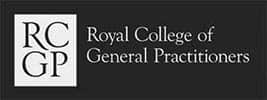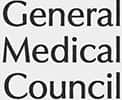
Are you considering Testosterone replacement therapy (TRT) to restore your testosterone to normal levels? Perhaps your normal sex drive is much lower than usual? Or do you want to feel more energetic as you age and regain some of your youthful vigour?
TRT is one solution to help you regain normal hormonal levels. Administered as a tablet, gel or injection, TRT therapy will reduce the symptoms of low testosterone.
Testosterone is primarily produced in male testicles and is a crucial hormone for many of the main bodily functions. It plays an important role in maintaining sex drive, muscle mass, bone density and optimising your overall well-being. Testosterone peaks during adolescence and declines gradually as you age.
Suffering from the symptoms of low testosterone, such as a low libido or fatigue? A healthcare professional at Harley Street MD can establish if hypogonadism or the normal ageing process is the cause.
There are typical symptoms of unnaturally low testosterone for several reasons. These causes can occur because of smoking, weight gain and high levels of daily stress in your life.
According to an article on WebMD, about 4 out of 10 men over age 45 have low testosterone.
Male hypogonadism can affect men of all ages, and a decreased testosterone level is a natural part of the ageing process or male menopause. We will carry out an initial blood test to measure your testosterone levels. We usually do the test in the morning when your levels should be at their highest. If below the normal levels, TRT may be a recommendation.
Many studies have shown that TRT is effective in improving symptoms associated with low testosterone. Men undergoing TRT have reported:
However, it’s essential to note that TRT may not be suitable for everyone, and individual responses to the therapy may vary. For example, at Harley Street MD, we’ll recommend a screening for prostate cancer as TRT can worsen the cancer growth.
The TRT treatment is administered at Harley Street’s clinic via a gel, injection or tablet.
Each offers its own advantages: the preference is up to you upon us giving our recommendations.
Many studies have examined the aftereffects of TRT therapy. There are many positive reviews from men who administered testosterone into their bodies to raise their hormonal levels. Muscle mass and better moods are among the benefits reported in reviews online.
Other positive experiences include:
According to the comprehensive drug information site, Drugs.com, “Testosterone has an average rating of 7.2 out of 10 from a total of 503 reviews on Drugs.com. 63% of reviewers reported a positive experience, while 19% reported a negative experience.”
A study in 2017 by the National Library of Medicine reached the conclusion that “TRT improved quality of life, depression, erectile function and libido”.
A 2019 study on men suffering from hypogonadism, written for Science Direct, was prepared by a group of qualified doctors and found that “TRT can ameliorate several aspects of sexual functioning, including libido, erectile function, and overall sexual satisfaction.”
As with any medical treatment, TRT has both advantages and disadvantages to consider.
The aim of TRT treatment is to restore your normal testosterone levels. Results can occur in just three weeks after the first dose, though expect a gradual release from the symptoms. Most men will need check-ups on their testosterone levels every 6 to 12 months after the first treatment.
A common question, of course: Is TRT safe? While there are pros, these are the major risks to be aware of.
A variety of factors can affect your testosterone levels, and you should speak to a doctor first. This will establish whether you have a medical condition causing your low testosterone levels.
Lower testosterone levels are normal as men age. If these health issues disrupt your daily life, it’s worth finding out if low testosterone levels are the cause. Studies have found TRT to reduce the following symptoms:
During your initial FREE consultation, we’ll assess if TRT is right for you.







